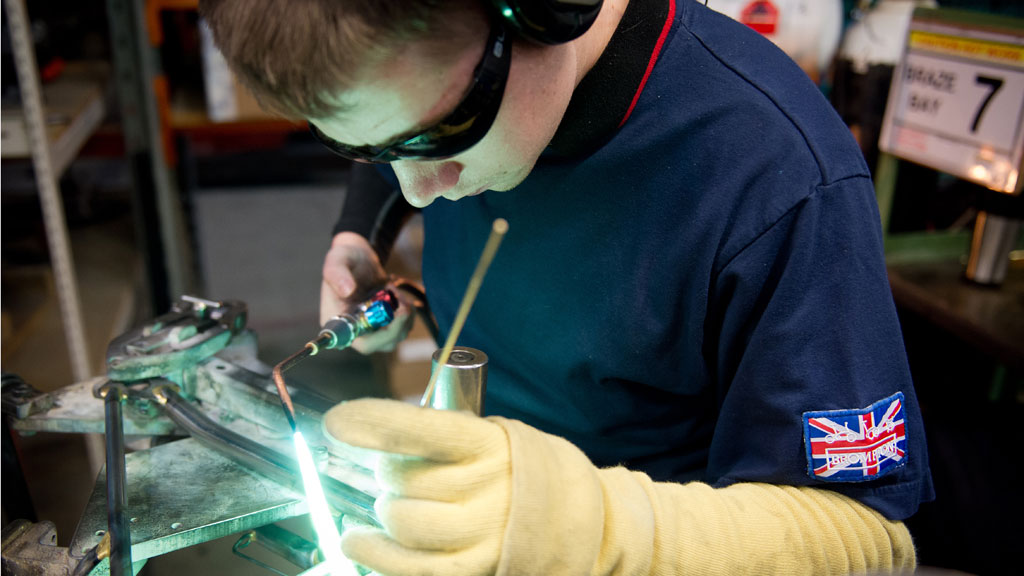Britain 2013: more jobs but lower wages and productivity
Despite the weak economy, employment is holding up – but earnings and productivity are falling, according to a leading think tank.

Since the start of the downturn in 2008, unemployment has remained low compared with previous recessions in the 1980s and 1990s, to the bemusement of many commentators.
Unemployment is now at its lowest level for 18 months (2.49 million) and the number of people in work is at an all-time high (29.7 million).
But productivity has fallen. Although more of us are working, output per employee is 3.2 per cent lower than in early 2008.
Falling real wages (salaries failing to keep pace with inflation) mean we have less money to spend. Since the beginning of 2008, the average worker has seen a 5.7 per cent fall in what their wages can buy.
These falling wages are helping businesses to maintain employment levels, rather than sacking staff, but they are also having a negative effect on productivity, according to a report by the Institute for Fiscal Studies (IFS).
Put simply, lower wages mean companies can afford to retain and recruit staff, boosting employment levels. But because we are producing less per worker, productivity is falling.
‘Remarkable’ employment levels
Helen Miller, a senior research economist at the IFS, said: “Given the scale and persistence of falls in output since 2008, it is remarkable that there are more people in work today in the UK than there were before the recession. The result though is a dramatic fall in labour productivity.”
The IFS report says: “Specifically, low wages allow firms to retain more staff than they otherwise would have, given the fall in output demand.
“Low wages also reduce the pressure to lay off the least productive employees and may have enabled some low-productivity firms to carry on operating rather than go bust.”
Although falling wages are not the only reason productivity is declining, according to the IFS, they are an important factor. The irony is that those of us in work are grappling with a falling standard of living, which is impeding economic recovery because we have less cash in our pockets.
There is also the fact that, over the longer term, falling productivity and real wages are unwelcome.
‘Not a good thing’
Simon Kirby, principal research fellow at the National Institute of Economic and Social Research, told Channel 4 News: “Falling real wages are not a good thing in the long run.
“Prosperity is determined by productivity growth in the economy. It is productivity growth that fundamentally improves our standard of living and leads to a rise in real wages.”
But falling real wages have kept employment levels high and unemployment levels relatively low.
Mr Kirby said: “If wages had kept pace with inflation, a large number of people would have been better off, but a large number of people would have lost their jobs and unemployment would have been higher. It’s a trade-off.”
Falling real wages have taken their toll on the lowest earners. Matthew Bolton, lead organiser of the Living Wage campaign, told Channel 4 News: “The cost of living has been rising steadily and at some points sharply over the course of the last five years, and it’s been rising more sharply than the minimum wage (of £6.19 an hour).
“For that reason, an increasing number of people and families have found themselves in working poverty.”
Almost five million people in work are not being paid the living wage of £7.45 an hour (£8.55 in London).